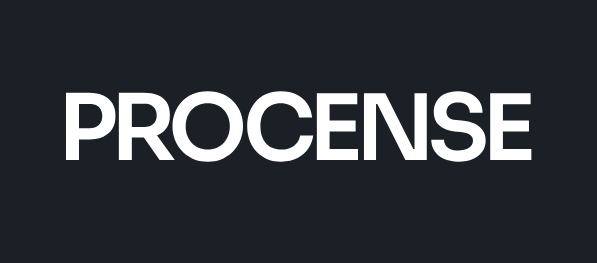Tools & Platforms
Most Employees Don’t Know How To Adopt AI—Survey

The majority of employees say they don’t know how to adopt artificial intelligence, according to a new survey by The Harris Poll on behalf of MasterClass.
In the report, 49 percent of respondents said they feel direct pressure to adopt AI, yet 55 percent said they don’t know where to start.
Why It Matters
Artificial intelligence has changed the larger workforce and business landscape in America, with most companies looking to employ it as a way to boost productivity.
But unclear rules and policies around the technology have led to some confusion among workers. A previous study from Howdy.com found that 16 percent of professionals sometimes pretend to use AI.
Cheng Xin/Getty Images
What To Know
In the MasterClass survey of nearly 1,700 U.S. workers, 66 percent said they had to teach themselves AI on the job.
That’s in addition to 54 percent who say their employers aren’t providing adequate AI training.
The percentage was roughly the same among men and women, at 57 and 50 percent, respectively. Meanwhile, 57 percent of Gen Z, 53 percent of millennials and 53 percent of Gen X professionals said they were going without proper AI workplace training.
“In many ways, the rise of AI in recent years is similar to the same integration environment involving social media nearly 20 years ago,” Alex Beene, a financial literacy instructor for the University of Tennessee at Martin, told Newsweek. “Whereas some employers with more tech-savvy employees were able to easily adapt to utilizing a new medium for communication and marketing, others took years to grasp how to use it effectively.”
Reza Hashemi, the CEO and founder of Binj and ZEROin AI, said there’s a perception that AI adoption is synonymous with career security, but many organizations often overestimate how seamlessly the new technology fits into daily workflows.
“Long term, if businesses don’t bridge the gap between hype and practical application, they risk creating a culture of fear and superficial adoption instead of true innovation,” Hashemi previously told Newsweek.
What People Are Saying
HR consultant Bryan Driscoll told Newsweek: “Most employees aren’t struggling with AI itself – they’re struggling with employers who won’t equip them. Workers are told to figure it out without training, support, or guardrails, while leadership races to show they’re innovative. Forcing workers to self-teach under pressure is a short-sighted gamble that reveals a hollow commitment to development.”
Beene told Newsweek: “With AI, we’re seeing businesses accustomed to a decades-long workflow now struggling to see what AI would truly change and benefit in their operations. Much like with social media, these employers will eventually find which methods best suit them, but don’t expect it to be rapid for all.”
What Happens Next
In the next few years, companies that don’t properly address AI could reduce the trust of their employees, Driscoll said.
“Long term, this isn’t just poor management. It’s a recipe for widening inequality and eroding trust in the workplace,” Driscoll said.
Tools & Platforms
How Brisk It’s AI Grills Are Revolutionizing Home Barbecue

The intersection of artificial intelligence and cooking technology has launched a new era for home chefs—one where perfect barbecue is no longer reserved for pitmasters with decades of experience. Christopher Huang, founder of Brisk It, is pioneering this transformation with AI-powered smart grills that make exceptional barbecue accessible to everyone, regardless of skill level or time constraints.
Bridging the Barbecue Gap
Brisk It began with a simple but powerful insight: most people love eating barbecue but find the cooking process intimidating. Even with traditional pellet grills, barbecuing remained a special-occasion activity. The fear of ruining expensive cuts of meat kept many potential grillers away from the smoker. Huang, a self-described barbecue enthusiast rather than a pitmaster, saw this gap and set out to solve it through technology.
What Sets Brisk It Apart: Agentic AI
Unlike many smart cooking devices that rely on pre-programmed recipes, Brisk It employs “agentic AI”—a system that adapts in real time, making decisions based on data rather than just following instructions. Their Vera AI allows users to simply state their goal (“make me a brisket”), and the system handles the rest—considering available ingredients, flavor preferences, and time constraints to create a personalized cooking program.
Advanced Temperature Control and Real-Time Problem Solving
Brisk It’s temperature control algorithms are adaptive and dynamic, using different logic for maintaining heat, rapid warm-ups, and cool-downs. This ensures exceptional temperature stability—critical for consistent barbecue results. The system even detects common issues like “stalls” (when meat temperature stops rising during smoking) and automatically adjusts or alerts the user, preventing hours of unnecessary waiting.
Personalized Cooking Through AI Learning
Through reinforcement learning with human feedback, Brisk It’s AI improves with every cookout. The more you use the grill, the more it understands your taste preferences, cooking style, and habits—creating a personalized and continually improving barbecue experience.
Innovation in Hardware and Design
Brisk It’s dedication to quality extends beyond software. The company built its grills from the ground up, going through 13 prototypes to achieve its distinctive look. They deliberately hired industrial designers from automotive and tech industries—including Apple devices—to bring a fresh, user-centric perspective to grill design.
Rapid Iteration and Continuous Updates
Unlike traditional appliance makers that release updates once a year, Brisk It pushes software improvements multiple times monthly, refining features based on user feedback. This Silicon Valley-style iteration allows them to move quickly and continually enhance the user experience.
Beyond Grilling: The Future of AI-Powered Cooking
Huang envisions Brisk It automating the entire home cooking experience—from deciding what to eat and grocery shopping to preparation, cooking, and even the social aspects of sharing meals. The goal: remove the stress from daily cooking while ensuring nutritious, delicious results tailored to individual preferences and dietary needs.
Technology Enhancing the Joy of Cooking
As the AI-powered cooking revolution gains momentum, it’s clear that technology isn’t replacing the joy of cooking—it’s making it more accessible and less stressful. For those who love eating barbecue but dread the process, solutions like Brisk It offer a middle ground, where technology handles the intimidating parts while still delivering authentic, delicious results.
This blog post was generated using Buzzsprout’s CoHost AI tool and is based directly on content from the associated podcast interview. While it has been reviewed for general accuracy and alignment with Tomorrow’s World Today’s values, edits have been made. The views and information presented may not fully reflect those of Tomorrow’s World Today or its partners.
Tools & Platforms
Feds launch AI inquiry after a chatbot was blamed for a teen’s suicide

Federal regulators and elected officials are moving to crack down on AI chatbots over perceived risks to children’s safety. However, the proposed measures could ultimately put more children at risk.
On Thursday, the Federal Trade Commission (FTC) sent orders to Alphabet (Google), Character Technologies (blamed for the suicide of a 14-year-old in 2024), Instagram, Meta, OpenAI (blamed for the suicide of a 16-year-old in April), Snap, and xAI. The inquiry seeks information on, among other things, how the AI companies process user inputs and generate outputs, develop and approve the characters with which users may interact, and monitor the potential and actual negative effects of their chatbots, especially with respect to minors.
The FTC’s investigation was met with bipartisan applause from Reps. Brett Guthrie (R–Ky.)—the chairman of the House Energy and Commerce Committee—and Frank Pallone (D–N.J.). The two congressmen issued a joint statement “strongly support[ing] this action by the FTC and urg[ing] the agency to consider the tools at its disposal to protect children from online harms.”
Alex Ambrose, policy analyst at the Information Technology and Innovation Foundation, tells Reason that she finds it interesting that the FTC’s inquiry is solely interested in “potentially negative impacts,” paying no heed to potentially positive impacts of chatbots on mental health. “While experts should consider ways to reduce harm from AI companions, it is just as important to encourage beneficial uses of the technology to maximize its positive impact,” says Ambrose.
Meanwhile, Sen. Jon Husted (R–Ohio) introduced the CHAT Act on Monday, which would allow the FTC to enforce age verification measures for the use of companion AI chatbots. Parents would need to consent before underage users could create accounts, which would be blocked from accessing “any companion AI chatbot that engages in sexually explicit communication.” Parents would be immediately informed of suicidal ideation expressed by their child, whose underage account would be actively monitored by the chatbot company.
Taylor Barkley, director of public policy at the Abundance Institute, argues that this bill won’t improve child safety. Barkley explains that the bill “lumps ‘therapeutic communication’ in with companion bots,” which could prevent teens from benefiting from AI therapy tools. Thwarting minors’ access to therapeutic and companion chatbots alike could have unintended consequences.
In a study of women who were diagnosed with an anxiety disorder and living in regions of active military conflict in Ukraine, daily use of the Friend chatbot was associated with “a 30% drop on the Hamilton Anxiety Scale and a 35% reduction on the Beck Depression Inventory” while traditional psychotherapy—three 60-minute sessions per week—was associated with “45% and 50% reductions on these measures, respectively,” according to a study published this February in BMC Psychology. Similarly, a June study in the Journal of Consumer Research found that “AI companions successfully alleviate loneliness on par only with interacting with another person.”
Protecting kids from harmful interactions with chatbots is an important goal. In their quest to achieve it, policymakers and regulators would be wise to remember the benefits that AI may bring and not pursue solutions that discourage AI companies from making potentially helpful technology available to kids in the first place.
Tools & Platforms
Procense Secures $1.5M in Seed Funding To Accelerate AI-Powered Manufacturing

Insider Brief
- Procense, a San Francisco-based industrial automation startup, raised $1.5M in seed funding led by Kevin Mahaffey and HighSage Ventures to expand its team and accelerate its AI-native manufacturing platform.
- The platform leverages LLM-powered tools, IoT sensors, and real-time AI agents to digitize paper processes, optimize workflows, and continuously improve manufacturing operations.
- Early adopters like Dr. Squatch report faster cycle times, reduced paperwork, and improved compliance, showcasing Procense’s ability to modernize production and boost efficiency across industries.
PRESS RELEASE — Procense, a San Francisco-based industrial automation startup developing cutting-edge AI and remote sensing technologies for process manufacturers, has raised $1.5 million in a seed funding round led by Kevin Mahaffey, Business Insider’s #1 seed investor of 2025 and HighSage Ventures, a Boston-based family office that primarily invests in public and private companies in the global software, internet, consumer, and financial technology sectors.
The new capital will enable Procense to expand its team and accelerate development of an AI-native manufacturing platform — one that automates process optimization, adapts to each facility’s unique workflows, and replaces manual configuration with intelligent software agents. This includes LLM-powered tools that digitize paper processes in minutes, AI-driven customization engines for seamless integration and workflow setup, and real-time process engineering agents that identify inefficiencies and drive continuous optimization — transforming how manufacturing systems are deployed, operated, and improved.
“To compete in today’s business environment, it’s obvious that top manufacturers will need Procense’s technology in order to meet the changing regulatory landscape, digitize operational data, and prepare for the next generation of AI-optimized industrial automation,” said Business Insider’s #1 seed investor of 2025, Kevin Mahaffey. “I am excited to help accelerate the Procense business so they can continue on their aggressive growth trajectory and bring innovative AI solutions to even more manufacturers across market segments.”
In today’s uncertain environment of labor constraints, rising production costs and shifting tariff policies, manufacturers are increasingly looking to digitize their operations to prepare for AI technology as a solution to maintain profitability. Procense is laser-focused on delivering proven solutions that streamline operations by leveraging AI tools that decrease onboarding time while enabling data collection and digitization, allowing manufacturers to better navigate these challenges in a cost-effective way that meets and exceeds today’s regulatory requirements.
“Since our launch, Procense has been dedicated to helping its customers modernize their production and quality data management, but today’s changing business environment has made our mission to deliver real-time visibility, automation, and predictive insights more important than ever before,” said Nirat Keswani, CEO and Co-Founder of Procense. “The Procense team is thrilled to have the support of proven investors Kevin Mahaffey and HighSage Ventures. Their track record of identifying and funding successful start-ups represents a meaningful vote of confidence for our industrial automation platform.”
Procense’s full-stack technology enables manufacturers to easily embrace a move to digitalization by integrating innovative Industrial IoT sensors that continuously track and record in-process operational data, allowing for the elimination of cumbersome paper-based and manual data collection. Along with simplifying operations, digitizing production data creates a foundation for future AI applications to identify inefficiencies, recommend corrective actions, proactively optimize production and customize systems over time.
For Procense’s customer, Dr. Squatch, the introduction of the Procense’s platform allowed the company to reduce or eliminate time-consuming manual tasks, improve compliance documentation workflows, to better monitor production, quality, and process deviations. After implementing Procense’s IoT sensors, digitizing paper based processes, adding real-time visibility into in-process production operations, and automating traceability the company realized 10% faster cycle times per batch, which translates into a significant returns for Dr. Squatch.
“We’re completing batches faster with less paperwork and fewer mistakes,” reports Dr. Squatch Lead Operator Leticia Rodriguez. “We’re saving time and gaining confidence. It’s helping us grow production without adding more stress or paperwork.”
About Procense
Procense is revolutionizing industrial data collection and analysis for personal care, specialty chemical, and batch manufacturers. We’re replacing outdated, paper-based, and legacy systems with AI-powered software and industrial IoT sensors for manufactures across food and pharmaceuticals to chemicals and personal care industries.
Our vertically integrated solution modernizes production and quality data management, delivering real-time visibility, automation, and predictive insights. This empowers manufacturers to achieve higher yields, fewer production issues, improved compliance, and a digitized record of critical data, accelerating implementation and creating a tangible competitive advantage.
Learn more at Procense.ai
Contacts
Keith Nowak
Media Relations
[email protected]
-

 Business2 weeks ago
Business2 weeks agoThe Guardian view on Trump and the Fed: independence is no substitute for accountability | Editorial
-
Tools & Platforms1 month ago
Building Trust in Military AI Starts with Opening the Black Box – War on the Rocks
-

 Ethics & Policy2 months ago
Ethics & Policy2 months agoSDAIA Supports Saudi Arabia’s Leadership in Shaping Global AI Ethics, Policy, and Research – وكالة الأنباء السعودية
-

 Events & Conferences4 months ago
Events & Conferences4 months agoJourney to 1000 models: Scaling Instagram’s recommendation system
-

 Jobs & Careers2 months ago
Jobs & Careers2 months agoMumbai-based Perplexity Alternative Has 60k+ Users Without Funding
-

 Podcasts & Talks2 months ago
Podcasts & Talks2 months agoHappy 4th of July! 🎆 Made with Veo 3 in Gemini
-

 Education2 months ago
Education2 months agoMacron says UK and France have duty to tackle illegal migration ‘with humanity, solidarity and firmness’ – UK politics live | Politics
-

 Education2 months ago
Education2 months agoVEX Robotics launches AI-powered classroom robotics system
-

 Funding & Business2 months ago
Funding & Business2 months agoKayak and Expedia race to build AI travel agents that turn social posts into itineraries
-

 Podcasts & Talks2 months ago
Podcasts & Talks2 months agoOpenAI 🤝 @teamganassi





















